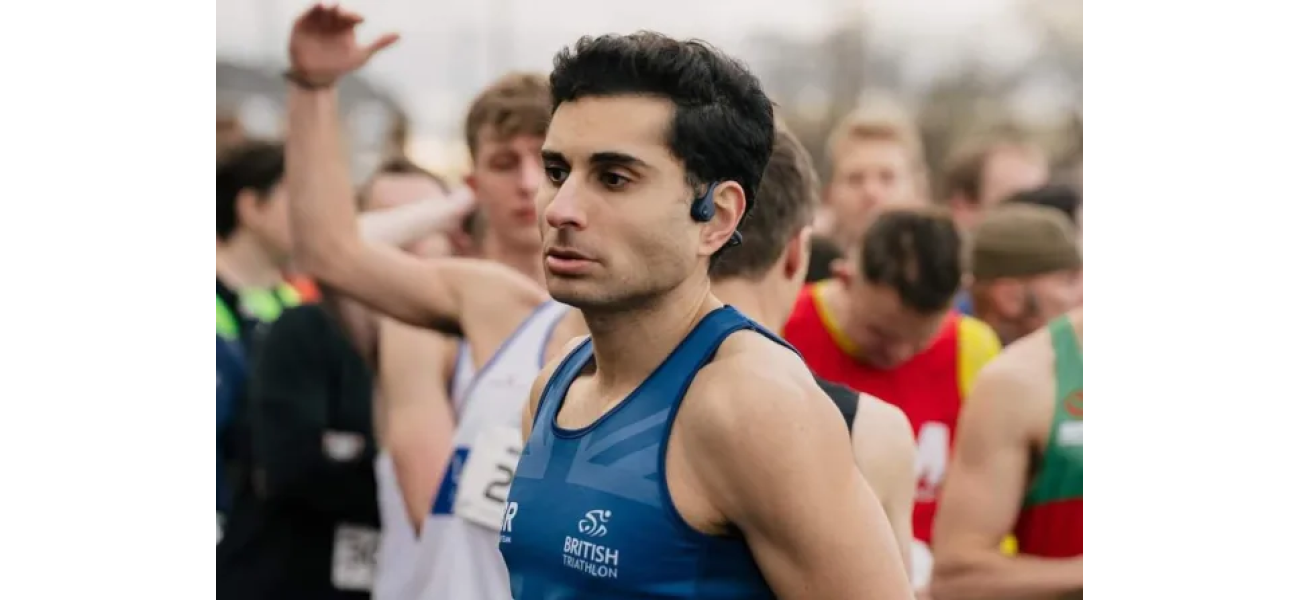Patient had joint pain, I advised one solution.
Parkrun now welcomes walkers, not just runners.
December 14th 2024.

As a GP, I have encountered many older patients struggling with mobility issues. One of my patients, Amara, who is 64 years old, came to me with persistent joint pain. I suggested a solution that has helped many of my other patients - joining the local parkrun. Now, before you start thinking that I have a habit of telling people with limited movement to start sprinting 5k, let me clarify. I was actually suggesting a specific element of the weekly run - parkwalk. This allows people who can't run the full parkrun course to still reap its benefits and improve their physical and mental health.
A few months after I recommended parkwalk to Amara, she came back for a review of her blood pressure medications. I took the opportunity to ask her if she had started walking, but she admitted feeling too scared to try it. She was worried that her joint pain would worsen and she would overdo it. Unfortunately, due to her fears, Amara had been mostly confined to her flat for the past few years, leading to increased isolation and anxiety, as well as deteriorating health.
I knew that parkwalk could help with both her mental and physical health, so I invited her back for another consultation. We talked about the barriers she faced and I reassured her that her concerns were valid. However, I explained that even gentle and consistent walking can improve joint mobility, strengthen muscles, and reduce pain and stiffness over time. In fact, even moderate-intensity walking has numerous benefits such as boosting heart health and longevity. A recent study even found that adding just 500 extra steps per day can lower cardiovascular risk by 14%.
It was clear that Amara was put off by the "run" element of parkrun and was worried about standing out or not feeling welcome. I made sure to emphasize, as we always do at parkrun, that it is not a race and that walkers are treated the same as runners. Inclusivity is at the very core of our weekly events. I also informed her that there is a dedicated parkwalker at every event, so she would never be alone if she wanted company.
I reassured Amara that she could walk at her own pace and stop as much as she needed. There was no pressure to run at a certain pace or complete the full distance. Despite commonly being associated with running, parkrun has become an activity that warmly welcomes walkers. In fact, the average finish time has gone up from 22.17 in 2005 to over 30 minutes, reflecting the increase in diversity of paces as more and more people sign up.
More than 1.25 million people have walked a 5K parkrun course globally, and each week, nearly 25,000 participants choose to walk instead of run. In the UK alone, an average of 5,397 people walk at parkrun weekly. Encouraged by the knowledge that many others chose to walk and that there was a tail walker, meaning she would not be the last to finish, Amara finally agreed to give it a try.
Joining parkrun is completely free and open to anyone, regardless of whether they are a keen runner, jogger, walker, or simply want to volunteer and cheer from the sidelines. All you have to do is register once. And the improvements were as quick as they were noticeable. Amara's mobility and pain have improved, but the impact on her mental health has been even more pronounced. The social aspect of parkwalk has helped alleviate her feelings of isolation, and the friendships she has formed while walking with others have made her feel connected.
Some people assume that parkwalk is only for non-runners or those with long-standing health problems. However, many who usually run the course also choose to walk occasionally. Personally, I have taken part in parkwalk and it has been a truly wonderful experience. Slowing down allowed me to talk to others, thank the volunteers, and take in the nature around me.
At her physical health check the following year, Amara had lost weight, which was also helping with her joint pain. Today, she continues to incorporate walking into her daily routine, even walking to the surgery and local shops instead of driving. Her journey serves as a powerful reminder that parkrun is not just about physical fitness - it is about mental resilience, community, and the simple act of moving forward at your own pace.
Personally, I felt a deep sense of satisfaction knowing that Amara had not only embraced a healthier lifestyle but also found joy and community through walking. For many, like Amara, parkwalk becomes more than just a weekly event - it becomes a key part of their wellbeing. And while the name may be "parkrun," it is clear that walking the course is just as celebrated and rewarding as running it. After all, it's not about "winning" the weekly 5k, but rather about improving physical and mental wellbeing for everyone.
A few months after I recommended parkwalk to Amara, she came back for a review of her blood pressure medications. I took the opportunity to ask her if she had started walking, but she admitted feeling too scared to try it. She was worried that her joint pain would worsen and she would overdo it. Unfortunately, due to her fears, Amara had been mostly confined to her flat for the past few years, leading to increased isolation and anxiety, as well as deteriorating health.
I knew that parkwalk could help with both her mental and physical health, so I invited her back for another consultation. We talked about the barriers she faced and I reassured her that her concerns were valid. However, I explained that even gentle and consistent walking can improve joint mobility, strengthen muscles, and reduce pain and stiffness over time. In fact, even moderate-intensity walking has numerous benefits such as boosting heart health and longevity. A recent study even found that adding just 500 extra steps per day can lower cardiovascular risk by 14%.
It was clear that Amara was put off by the "run" element of parkrun and was worried about standing out or not feeling welcome. I made sure to emphasize, as we always do at parkrun, that it is not a race and that walkers are treated the same as runners. Inclusivity is at the very core of our weekly events. I also informed her that there is a dedicated parkwalker at every event, so she would never be alone if she wanted company.
I reassured Amara that she could walk at her own pace and stop as much as she needed. There was no pressure to run at a certain pace or complete the full distance. Despite commonly being associated with running, parkrun has become an activity that warmly welcomes walkers. In fact, the average finish time has gone up from 22.17 in 2005 to over 30 minutes, reflecting the increase in diversity of paces as more and more people sign up.
More than 1.25 million people have walked a 5K parkrun course globally, and each week, nearly 25,000 participants choose to walk instead of run. In the UK alone, an average of 5,397 people walk at parkrun weekly. Encouraged by the knowledge that many others chose to walk and that there was a tail walker, meaning she would not be the last to finish, Amara finally agreed to give it a try.
Joining parkrun is completely free and open to anyone, regardless of whether they are a keen runner, jogger, walker, or simply want to volunteer and cheer from the sidelines. All you have to do is register once. And the improvements were as quick as they were noticeable. Amara's mobility and pain have improved, but the impact on her mental health has been even more pronounced. The social aspect of parkwalk has helped alleviate her feelings of isolation, and the friendships she has formed while walking with others have made her feel connected.
Some people assume that parkwalk is only for non-runners or those with long-standing health problems. However, many who usually run the course also choose to walk occasionally. Personally, I have taken part in parkwalk and it has been a truly wonderful experience. Slowing down allowed me to talk to others, thank the volunteers, and take in the nature around me.
At her physical health check the following year, Amara had lost weight, which was also helping with her joint pain. Today, she continues to incorporate walking into her daily routine, even walking to the surgery and local shops instead of driving. Her journey serves as a powerful reminder that parkrun is not just about physical fitness - it is about mental resilience, community, and the simple act of moving forward at your own pace.
Personally, I felt a deep sense of satisfaction knowing that Amara had not only embraced a healthier lifestyle but also found joy and community through walking. For many, like Amara, parkwalk becomes more than just a weekly event - it becomes a key part of their wellbeing. And while the name may be "parkrun," it is clear that walking the course is just as celebrated and rewarding as running it. After all, it's not about "winning" the weekly 5k, but rather about improving physical and mental wellbeing for everyone.
[This article has been trending online recently and has been generated with AI. Your feed is customized.]
[Generative AI is experimental.]
0
0
Submit Comment





